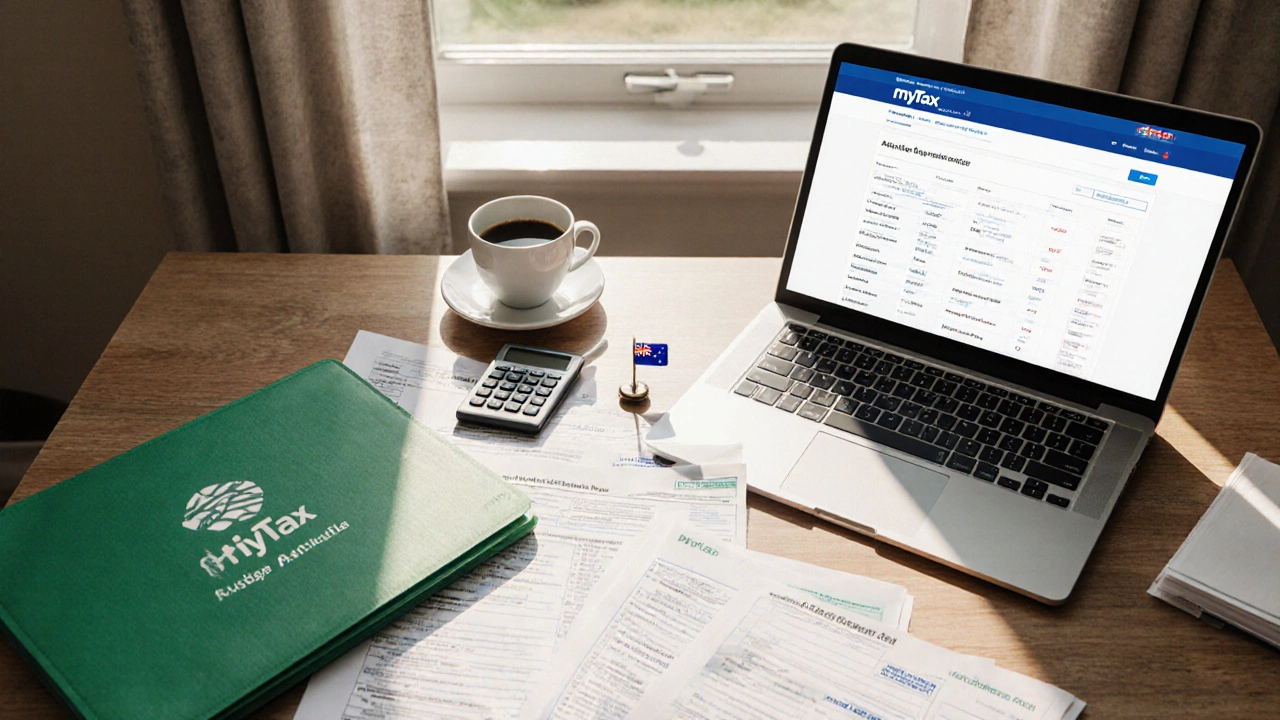Tax season is one of those times that sneaks up faster than you'd think, right up there with birthdays and anniversaries. But unlike those other ones, understanding when to file your income tax return can actually save you some headaches—and maybe even a bit of money.
Alright, first things first. The moment you receive all your necessary documents, like your W-2s and 1099s, you're technically ready to file. The IRS starts accepting tax returns around mid-January every year. Filing as early as possible can have some sweet perks like quicker refunds and dodging the risk of identity theft. Who doesn’t want that?
- Understanding the Tax Year Timeline
- Benefits of Early Filing
- When to Hold Off on Filing
- How Refund Timing Affects Your Finances
- Common Mistakes and How to Avoid Them
Understanding the Tax Year Timeline
Alright, let's break down the tax year timeline so you know exactly what you're dealing with. A tax year in the United States runs from January 1st to December 31st. It's a straightforward calendar year, which makes it a bit easier to remember.
The IRS opens the gates for filing your income tax return on or around mid-January. While you might be tempted to dive in right away, remember that employers and financial institutions typically have until January 31st to send out crucial documents like your W-2s and 1099s. Most folks should wait until they have all these papers in hand to avoid a headache down the road.
Once you have all your documents, you’ve got until April 15th to file. If tax day falls on a weekend or holiday, the deadline gets pushed to the next business day, which is a small blessing if you're a procrastinator.
But here's a tip: if you spot an error in your paperwork last minute, don't panic. You can file for an extension, which gives you until October 15th to get everything sorted. Just remember, this extension is for filing the return itself, not for paying any taxes owed. If you owe Uncle Sam, that bill's still due in April.
Keeping on top of these dates means you're not just avoiding penalties but also making sure you get any tax refund you're due without unnecessary delays. Keeping a calendar reminder for these dates is a smart move if you're the forgetful type.
Benefits of Early Filing
Jumping on the tax filing bandwagon early can feel like hitting the jackpot. Why? Well, for starters, early income tax return filers often see their refunds land in their bank accounts sooner. The IRS tends to be less busy at the beginning of the season, so things process quicker. If you're someone who counts on your refund for something important, like catching up on bills or even planning a small getaway, early filing is your friend.
Early filing isn't just about speed. It also brings peace of mind. The sooner you file, the less chance there is for identity thieves to swoop in, file a return in your name, and nab your refund. Identity theft during tax season is a real problem, but getting your taxes done early gives criminals less time to maneuver.
Here's something interesting: filing early gives you more time to correct mistakes. Missed a form or found a mistake after filing? No sweat if you filed in January or February, because you still have plenty of time before the April deadline to amend.
- Receive rapid tax refunds.
- Reduce risk of tax-related identity theft.
- Have ample time to amend any errors.
Moreover, early filing can play nice with your overall financial strategy. If you owe this year, you'll know the damage sooner and have more time to plan your payment. It's like a head start on budgeting for what might feel like a financial sting.
So, if you're all about faster returns and protecting yourself from those lurking identity thieves, and you don't mind the bragging rights that come with having checked off a big to-do, think about filling out that return sooner rather than later.

When to Hold Off on Filing
Waiting to file your income tax return might seem counterintuitive, but there are times when you actually might want to tap the brakes. One of the main reasons to delay is if you're expecting some of those crucial tax forms to come in a bit late. Sometimes employers or financial institutions can have delays in mailing out W-2s or 1099s, so rushing could lead to a mistake that might require an annoying amendment later.
If you have fluctuating income or complex deductions and credits, holding off may give you more time to properly calculate your tax situation. This is especially true for anyone dealing with itemized deductions. Make sure you’ve gathered every receipt and record you need—especially if you’ve got a lot of medical expenses, charitable contributions, or local taxes paid that might benefit from a deeper dive.
There's also the chance that the numbers might update—sometimes the IRS updates thresholds and limits on various credits and deductions. Waiting till these tweaks are officially out might lead to a more accurate filing. This can be super important if you’re close to income thresholds affecting key tax credits, like the Earned Income Credit or Child Tax Credit.
Interestingly enough, if you owe money to the IRS, procrastinating a little isn't all bad. It’s not the best for your stress levels, but you technically don’t have to pay until the tax deadline, usually April 15th. This could give your wallet a last-minute breather, although you’ll want to make sure all your info is buttoned up to avoid any penalties for late filing.
It’s all about strategy. So, take your time, gather everything you need, and think about how your filing timing might affect things like your tax refund. Good things come to those who wait, or at least sometimes they do when it comes to taxes.
How Refund Timing Affects Your Finances
Did you know that when you file your income tax return can change your financial landscape for the year? It's true! Filing early vs. waiting it out till the deadline can mean different things for your wallet, and there's a bit of strategy involved.
For starters, filing early often means getting your tax refund faster. According to the IRS, e-filing combined with direct deposit usually gets you a refund within 21 days. That's a quick way to get some extra cash flowing into your budget early in the year—just think of all those holiday bills you might want to knock out!
If you're expecting a big refund, consider the financial opportunity cost of that money sitting with the government instead of in an investment or savings account. As financial advisor Dave Ramsey puts it,
"Your refund is not a bonus. It's your own money being returned to you without interest."
On the flip side, waiting to file might actually help folks who owe taxes more than they get back. Hanging onto your cash longer could help you save and plan better without needing to jump through hoops to make an extra tax payment too soon.
Here's an interesting nugget: early filers also reduce the risk of tax-related identity theft, which can really mess up your finances if someone gets ahold of your info and claims your refund.
So let's put it simply: If you're getting money back, filing early is probably a smart move. But if you owe, waiting a bit could align better with your financial game plan. Either way, being aware of how tax refund timing affects your finances helps you stay in control.

Common Mistakes and How to Avoid Them
Navigating the tax world is tricky, and it’s easy to slip up on stuff that seems minor but can become a big deal. Here are some classic slip-ups folks make when dealing with their income tax return, along with tips on steering clear of them.
First off, double-check your personal info. Sounds simple, right? Yet, things like a mistyped Social Security number are common errors that can slow down your refund. So take a minute to review before hitting send.
Another hiccup people encounter is missing deadlines. Yeah, the April deadline is burned into our brains, but state taxes and extensions have their own schedules. Set reminders to keep yourself on track and avoid those pesky penalties.
Don’t forget deductions and credits! So many people miss out because they underestimate what applies to them. Education credits, home office deductions, and more can really boost that return. Do a bit of research or consult a tax pro to see what you qualify for.
- Not reporting all income can come back to bite you—remember, the IRS gets copies of your W-2s and 1099s too!
- If you’re filing jointly, both spouses need to check the return. Two sets of eyes can catch what one might miss.
- Lastly, make sure to choose direct deposit for refunds. Paper checks can take weeks more to process and reach you.
These might seem basic, but they tripped up almost 20% of tax filers last year. Smart timing, accuracy, and attention to detail when dealing with your tax filing can save both stress and cash.


